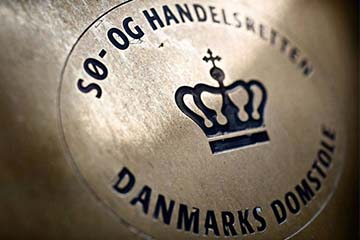New EU rules on trade secrets
By
Emil Jurcenoks
27 May 2016
The European Parliament and the Council have just adopted the long-awaited Directive on the protection of trade secrets.
For many businesses, trade secrets are the most important type of protection of their business information, technological information and know-how. Trade secrets are often also used as a supplement or an alternative to proper intellectual property rights such as patents.
The object of the new Directive is to strengthen the protection of trade secrets in the EU by getting the Member States to determine uniform national rules on unlawful acquisition, use and disclosure of trade secrets.
The Directive contains a large number of provisions, including on what is meant by a "trade secret", what is lawful and unlawful acquisition, the use and disclosure of trade secrets and the remedies that must be available in the event of unlawful acquisition, use and disclosure of trade secrets.
In some respects the implementation of the Directive in Denmark will probably only result in codification/clarification of what is already laid down in the Danish rules and the relating Danish case law on the protection of trade secrets. In other respects the implementation will probably result in actual amendments to current Danish law.
In case of any doubt as to the interpretation of the new rules, which are fairly broadly worded and leave a number of unclarified questions, it will be possible to ask the Court of Justice of the European Union questions about the interpretation of the rules after the implementation as is the case in other areas regulated by the EU.
The Member States have two years to implement the Directive into national law and it will be interesting to see whether the existing Danish rules will be adjusted or whether we will get a completely new, independent act on the protection of trade secrets.
We will follow the Danish legislation process closely and until the final implementation of the Directive we will publish regular updates on the subject and focus on the Directive's provisions and the protection of trade secrets.
The object of the new Directive is to strengthen the protection of trade secrets in the EU by getting the Member States to determine uniform national rules on unlawful acquisition, use and disclosure of trade secrets.
The Directive contains a large number of provisions, including on what is meant by a "trade secret", what is lawful and unlawful acquisition, the use and disclosure of trade secrets and the remedies that must be available in the event of unlawful acquisition, use and disclosure of trade secrets.
In some respects the implementation of the Directive in Denmark will probably only result in codification/clarification of what is already laid down in the Danish rules and the relating Danish case law on the protection of trade secrets. In other respects the implementation will probably result in actual amendments to current Danish law.
In case of any doubt as to the interpretation of the new rules, which are fairly broadly worded and leave a number of unclarified questions, it will be possible to ask the Court of Justice of the European Union questions about the interpretation of the rules after the implementation as is the case in other areas regulated by the EU.
The Member States have two years to implement the Directive into national law and it will be interesting to see whether the existing Danish rules will be adjusted or whether we will get a completely new, independent act on the protection of trade secrets.
We will follow the Danish legislation process closely and until the final implementation of the Directive we will publish regular updates on the subject and focus on the Directive's provisions and the protection of trade secrets.







